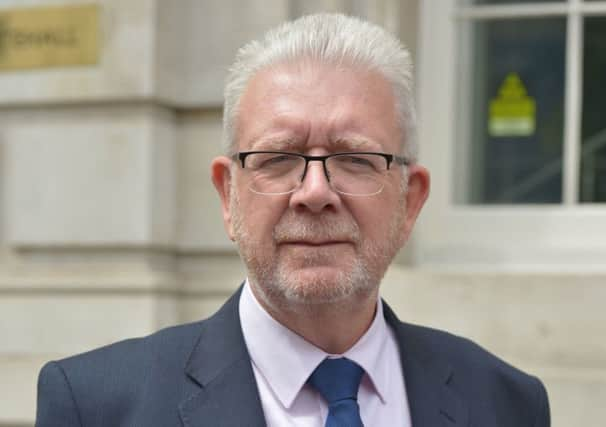Scotland Office fights plan to strike down devolved Brexit legislation


Whitehall officials are reported to be considering striking down the Continuity Bill passed by the Scottish Parliament.
MSPs from every party except the Conservatives backed the bill by 95 votes to 32 following the failure by the Scottish and UK governments to reach agreement on post-Brexit devolution. It poses a direct challenge to Westminster’s constitutional authority, claiming 24 disputed powers which are set to be frozen in London under the UK government’s flagship Brexit legislation.
Advertisement
Hide AdAdvertisement
Hide AdMinisters in London are taking their counterparts in Edinburgh to the Supreme Court to argue that the Continuity Bill is unconstitutional.
The legislation is on hold until the case is heard on 24 and 25 July.
Whitehall lawyers are understood to want to use Westminster’s powers under the Scotland Act to strike it down if the UK government wins in court.
But the Scotland Office hit back at the claims yesterday, with David Mundell saying: “It’s just not an option to repeal the continuity bill... The government is not considering that as an option.”
The Scottish Secretary said: “We are going to the Supreme Court to seek its view on the position of the Continuity Bill. It will be for the Court to determine which view is the appropriate one.
“We will act in accordance with the judgement of the Court, we will not be repealing the bill from Westminster.”
A source added that it was a case of “lawyers having conversations with lawyers” and that any attempt by the UK to force the repeal of devolved legislation would be “politically unacceptable”.
The Scotland Office is understood to want the Continuity Bill amended if the UK wins at the Supreme Court, in the hope that the legislation can coexist with the EU Withdrawal Bill passed at Westminster.
Advertisement
Hide AdAdvertisement
Hide AdMichael Russell, the Scottish Government’s Constitution Secretary, warned against the move following talks with UK counterparts in London.
“The UK government should be thinking about how they work with the devolved administrations, not how they work against the devolved administrations.
“That would be a foolish thing to do.”
Asked if taking such a step would provoke a constitutional crisis, Mr Russell said Brexit mean the UK was “already in a constitutional crisis”.
He added: “A constitutional crisis in the classic definition is when you have a set of difficulties that cannot be resolved by the current constitutional settlement.
“We know that devolution is broken. Devolution has been unable to bear the weight of Brexit.
“Now we need a new dispensation - I know what that should be in terms of independence - but what we need today, practically, is a solution to the problem that the UK government has created.” Following reports that the official Vote Leave campaign in the EU referendum is about to be accused by the Electoral Commission of breaking legal spending limits, Mr Russell suggested the legitimacy of the Brexit result was in doubt.
“I think the legitimacy of this result has been under question for a considerable period of time,” he said.
“I think there are many good people who believed that they were voting for something that would produce benefit. It hasn’t done that.”
He added: “If they were voting for it on the basis of a false prospectus, and indeed breaches of electoral law, then that creates a very serious set of circumstances which have to be addressed.”
